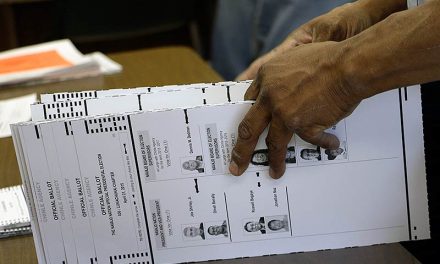
Page-Navajo aid agreement ends
TSÉBIGHÁHOODZÁNÍ
An agreement to provide public safety services to Western Navajo ended on Sunday, leaving the large area near Page-Lake Powell vulnerable to potential criminal activity.
Page City Manager Darren Coldwell in September sent a letter to Navajo Police Chief Phillip Francisco saying the city would terminate the 2016 Mutual Aid Agreement between the Navajo Nation Police, the Navajo Nation Division of Public Safety, and the Page Police Department, if concerns were not addressed.
Coldwell said neither Francisco nor Tuba City Police District Capt. Leonard Williams and Jesse Delmar, the executive director of Division of Public Safety, reached out to Coldwell’s office to resolve issues.
“The (Sept. 8) letter outlined some worries relating to emergency response by the city into Navajo Nation territory and the lack of appropriate agreements for the city response or requests for mutual aid,” Coldwell said in a follow-up letter to Francisco last Thursday.
Coldwell said, “At the conclusion of the (Sept. 8) letter, it was politely requested that a meeting to discuss concerns and potential solutions be considered.”
Rather than responding to his office, Coldwell said, Francisco talked to the Navajo Times.
“The city was very disappointed to see that Chief Francisco chose to speak to the media instead of reaching out to the city directly,” Coldwell explained.
“The city was further disappointed, and frankly confused, to see that (Francisco) publicly stated that Page resources ‘have rarely, if at all, in the last year or two, come onto Navajo Nation to take calls or assist us,’” he said.
Coldwell wrote in the Oct. 28 follow-up letter that the Page Police Department received 754 public safety calls for Western Navajo, 269 of which are calls within the last 24 months.
The Page Fire Department and the EMS responded 910 times since 2016.
“Had (Francisco) bothered to reach out and discuss the matter with the city as requested, the city could have shared these statistics and others that highlight the need for a change in the current practices,” Coldwell said.
He added, “The city truly does not want to see our friends, family members, and neighbors on the Navajo Nation suffer due to lack of emergency response.
“Nevertheless, the good people of LeChee, Coppermine and Kaibeto, among other (communities) are exasperated at the lack of public safety response to those areas of the reservation,” he said.
Working with chief, not city manager
Francisco said his police commanders are working with Page Police Chief Tim Lange to resolve issues, not Coldwell.
Lange, who’s Bilagáana, is a former Navajo Police officer.
“We have a good working relationship with the chief (Lange),” Francisco said in an interview with the Navajo Times on Wednesday morning.
“We’ll come to a resolution between the captain (Tuba City District Capt. Williams) – because he’s responsible for allocation of manpower and addressing issues in (Western).
“And directly with (Lange),” he added. “We also have fire and EMS from the Navajo Nation, and they’re talking directly with their counterparts in Page also.”
Francisco said his team is trying to find a resolution for public safety in Western that works.
“I don’t think the Mutual Aid Agreement is in place anymore,” Francisco said. “They would have to renew it.
“But either way, without the agreement, we’re still dedicated to protecting the citizens of both sides and co-responding – the police departments on both sides,” he said, “to provide emergency services the best we can and work together in that area.”
The Oct. 28 letter included a 53-page report of emergency service calls the Page police officers responded to in Western.
“The concerns came from the two chiefs (Lange and Page Fire Chief Jeff Reed),” Coldwell said in a follow-up interview with the Times on Friday. “Their concern being the limited manpower that they have on their forces.”
Coldwell said the Page police and EMS personnel have responded to emergency service calls in Western because if his staff doesn’t do it, no one will, placing the city in a precarious moral position, which leaves the city without adequate resources for response.
“We discussed it for a quite a while and kind of let it go,” Coldwell. “With the antiquated mutual aid system that we had, I figured it was time to reach out to see if we could do something that was a little better for both of us.
“The response time from the Navajo PD, it can take quite a while,” he said. “We’re hoping that maybe some of those services can return to the neighbors and we can start off on a fresh foot.”
Coldwell said Francisco needs to send resources to Western.
“There’s an amount of frustration coming from our emergency services,” Coldwell said in tears. “When we’re not getting halfway, after a while you start getting frustrated.
“As of Sunday (Oct. 31), our services won’t be rendered up to the Navajo Nation any longer,” he said. “Trust me, it’s kept all of us awake at night, hoping Sunday never came. I hope the people of the Navajo Nation realize it was a very tough decision.”








 Highway 264,
Highway 264, I-40, WB @ Winslow
I-40, WB @ Winslow